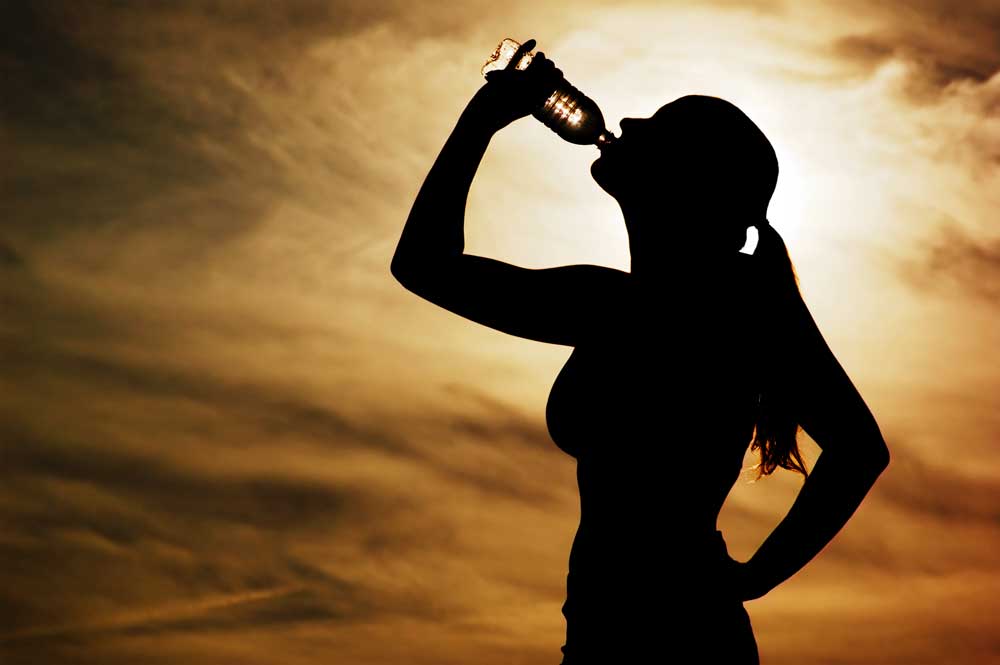As summer days get longer and temperatures increase, people tend to be more active and often forget to make sure they’re properly hydrated. Drinking enough water is necessary for many processes in the body, from sufficiently regulating body temperature and flushing waste, to protecting the brain and spinal cord and lubricating joints. Even being mildly dehydrated can compromise bodily functions.
What is Dehydration?
In essence, dehydration occurs when the body is losing more fluid than it’s taking in, and it’s not only caused by excessive release of fluids, but also from lack of sufficient fluid consumption. Most people are actually living in a state of chronic dehydration, and since feeling thirsty isn’t the only or most reliable indicator to fill your glass, these 5 symptoms may be your cue to increase your intake.
- Bad Breath
If your friends and co-workers are constantly offering you mints or gum, it may not be out of the kindness of their hearts. “Dehydration can give you bad breath,” says Marshall Young, DDS, a dentist in Newport Beach, CA. “Saliva has important antibacterial properties. When dehydrated, the decreased saliva in the mouth allows bacteria to thrive, resulting in bad breath,” and potentially leading to cavities and gum disease.
- Racing Heart Rate
Not drinking enough water leads to a decrease in the volume of blood in your body, and to compensate, your heart rate speeds up in an attempt to pump out the amount of blood your body needs to function and to maintain blood pressure. If your heart rate is above 100 beats per minute, you might even experience palpitations, which are like little “hiccups” in your heart’s rhythm that can feel alarming.
- Saggy Skin
When the skin on the back of your hand doesn’t snap right back into place after being pinched, that sagging is a sign you need more fluids immediately. Technically called “decreased skin turgor,” it occurs with moderate to severe dehydration, and is actually how medical professionals assess fluid loss in patients.
- Unmanageable Munchies
Snacking again? Instead of actually being hungry, you might not be drinking enough water and are simply experiencing confused thirst signals. Both hunger and thirst are regulated by the hypothalamus, and mild dehydration is often masked as feelings of hunger, causing intense cravings and overeating.
- Water Retention
Instead of processing liquid out of the body when dehydrated, water can actually be reabsorbed into the tissue to conserve it, causing painful swelling throughout the body. “If you’re not drinking enough liquid, your body may actually retain water to compensate,” says Christopher Vasey, ND, a Swiss Naturopath and author of The Water Prescription.
Fill up on Fluids
Dehydration is a potentially dangerous condition that can keep you from being as active as possible, and drinking enough water is a simple step in staying healthy. At Health Star Clinic, we also want to help you resolve any other conditions that may be compromising your desired lifestyle and activity levels. Call us today to learn more!

